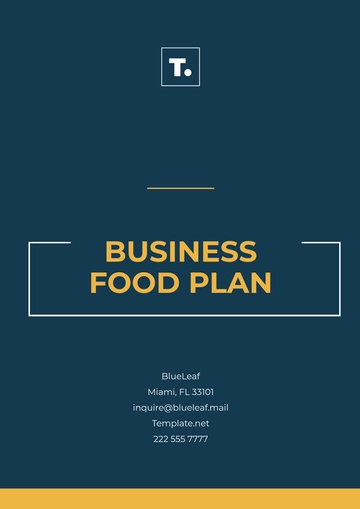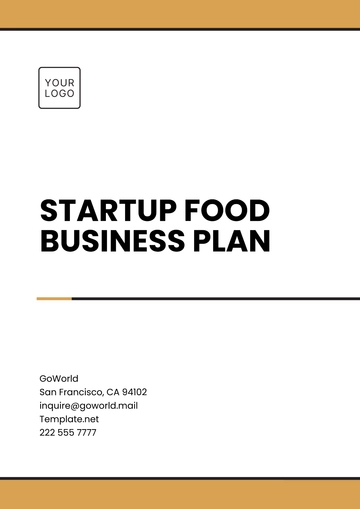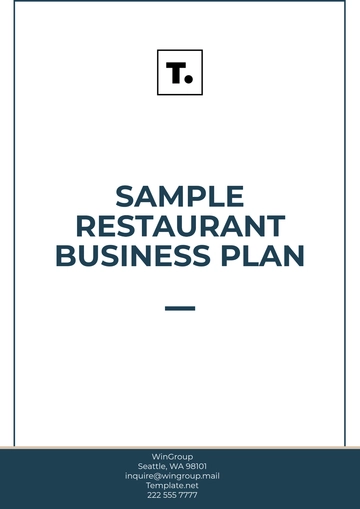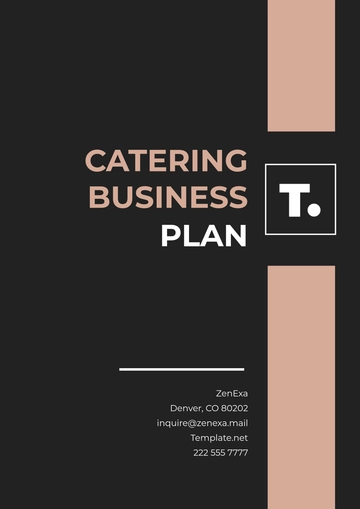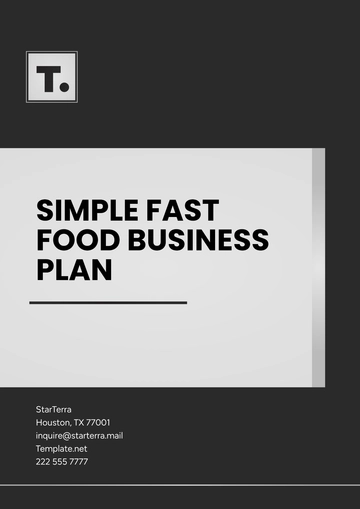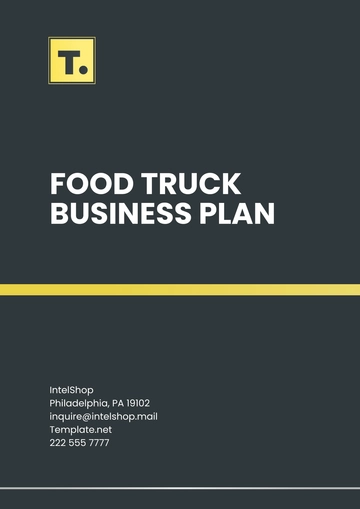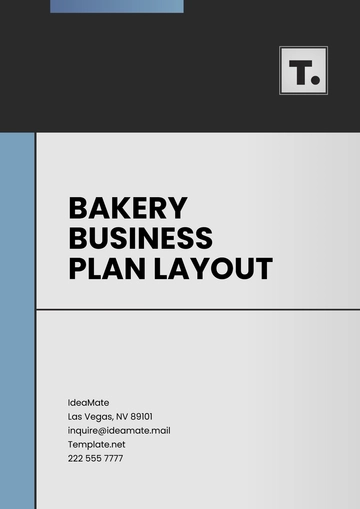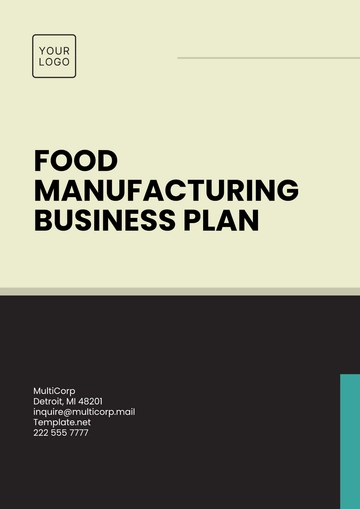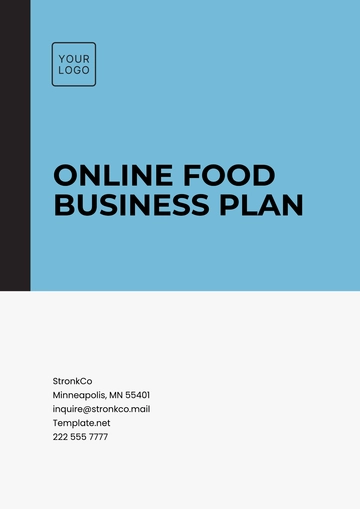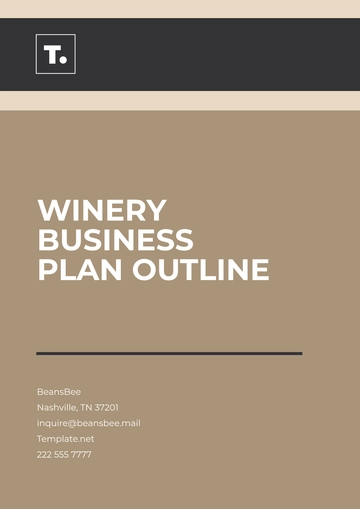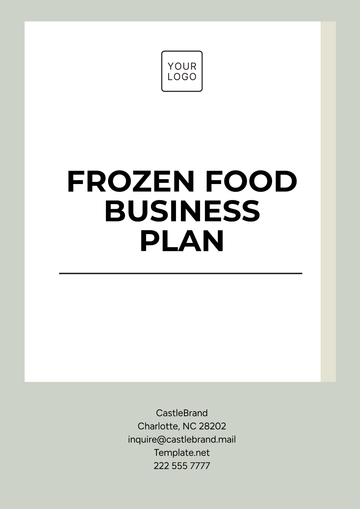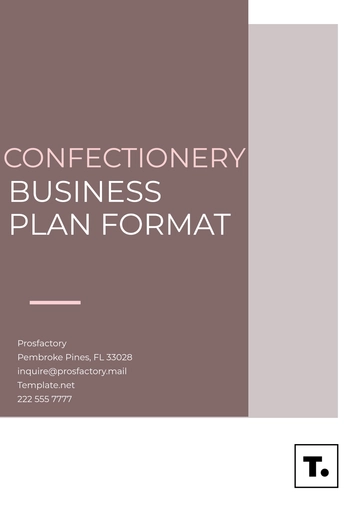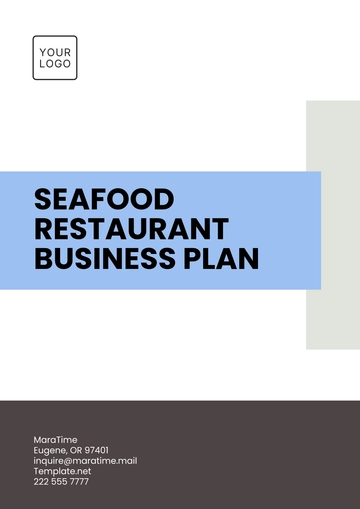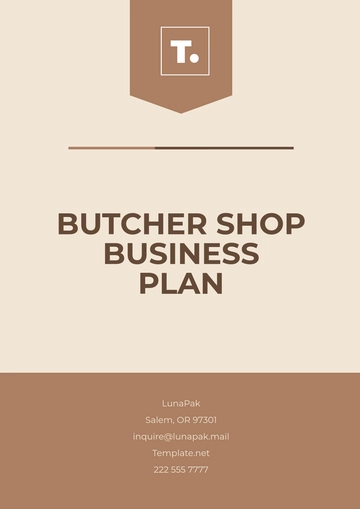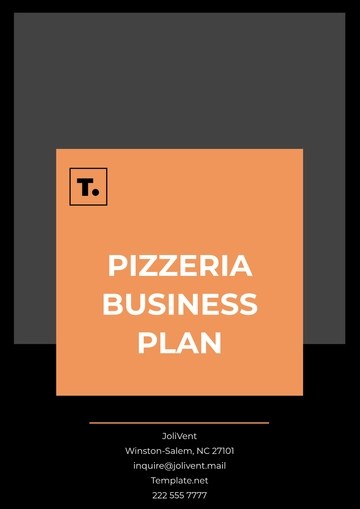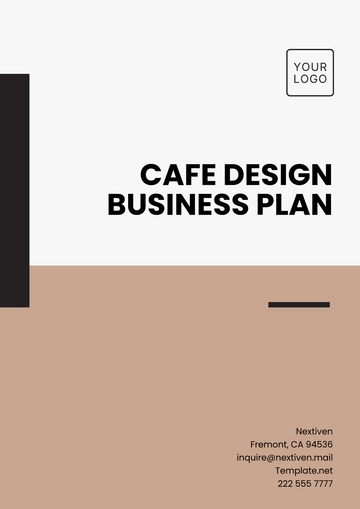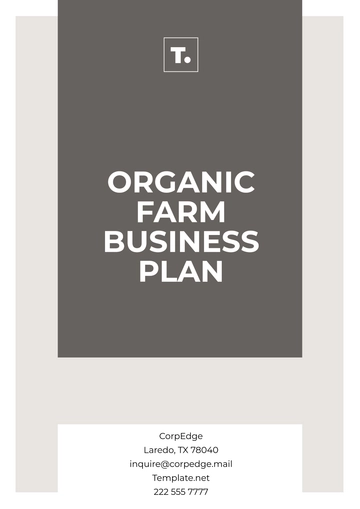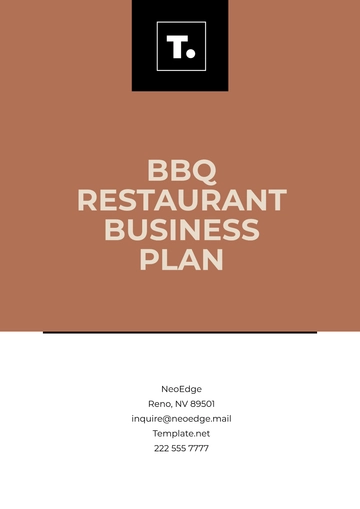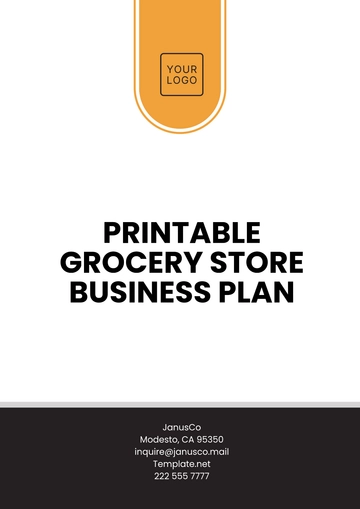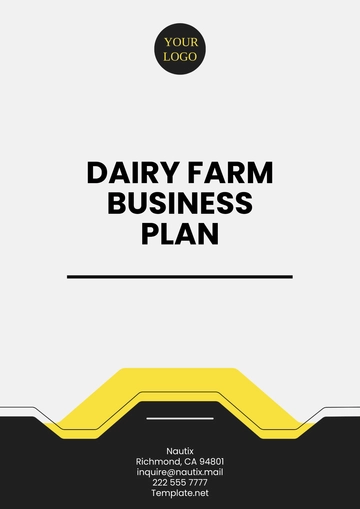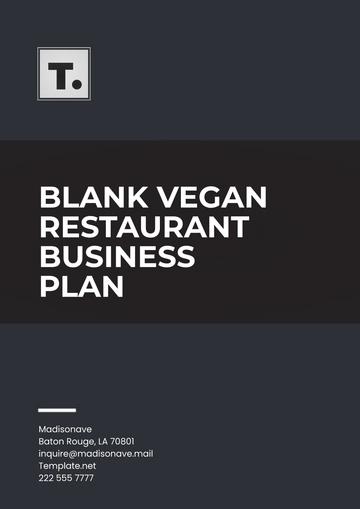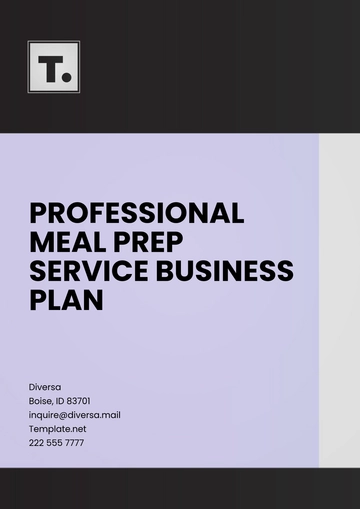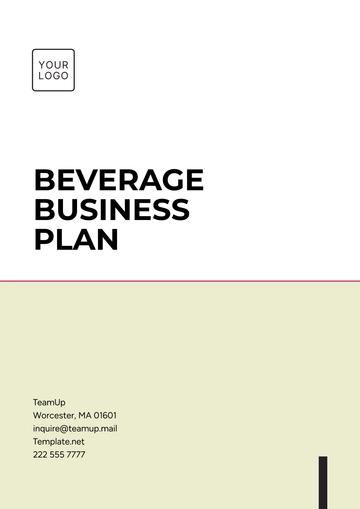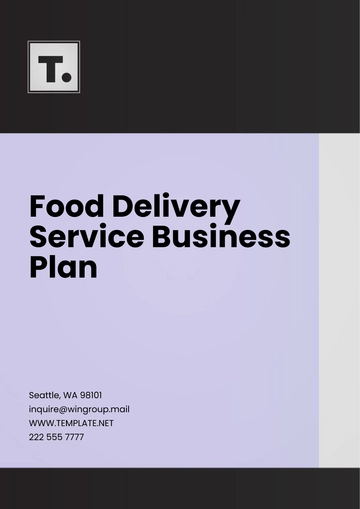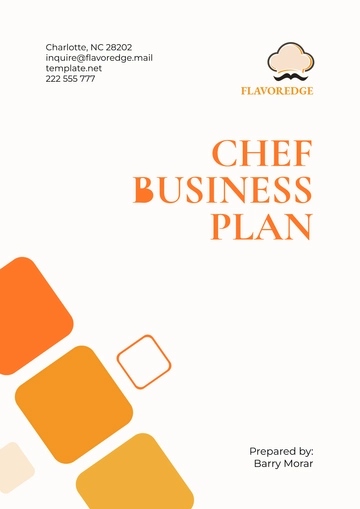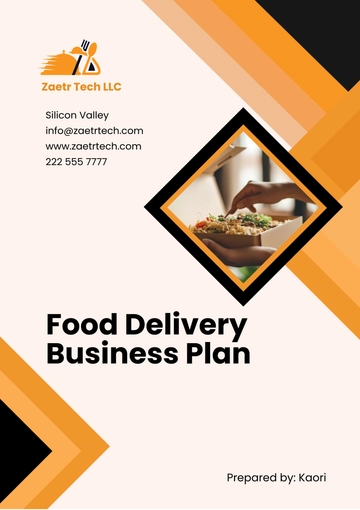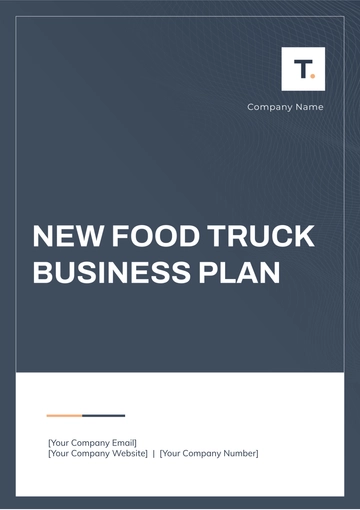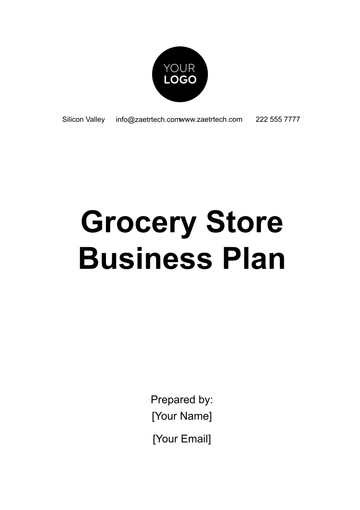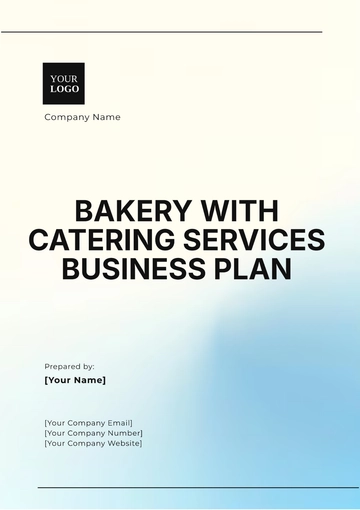Free Food Truck Business Plan
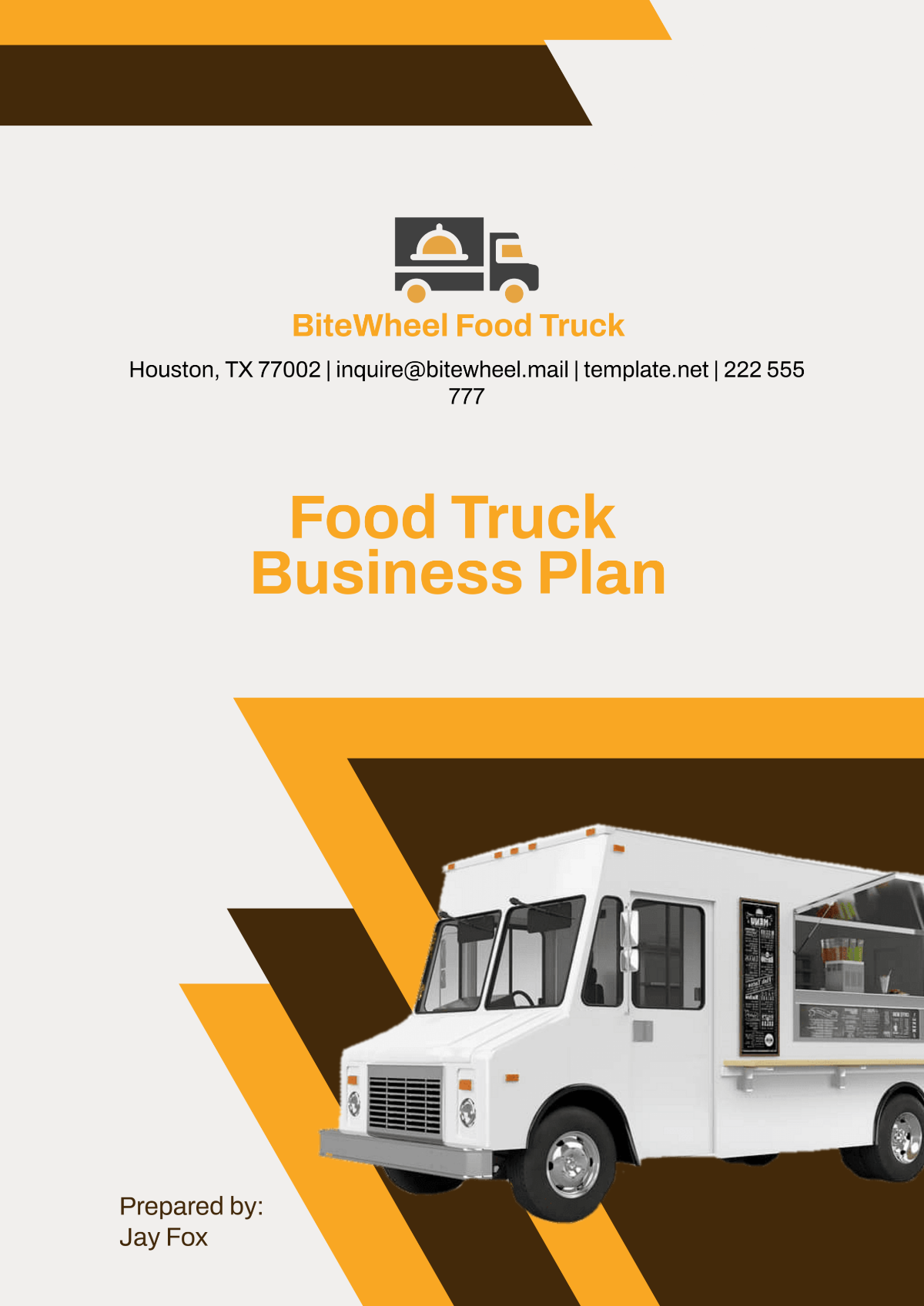
Prepared by: [Your Name]
Company: [Your Company Name]
Date: [Insert Date]
I. Executive Summary
A. Introduction
Welcome to [Your Company Name] Food Truck Business Plan. We are thrilled to present a comprehensive strategy for launching and managing a successful food truck venture at [Your Company Address].
B. Mission Statement
Our mission is to bring delicious International Fusion cuisine to the streets, offering exceptional taste and convenience to our valued customers while contributing vibrancy to the local food scene.
C. Objectives
Establish [Your Company Name] as the go-to destination for International Fusion enthusiasts.
Expand our customer base by 20% within the first year.
Achieve a monthly revenue of $10,000 by the end of Year 1.
II. Business Description
A. Company Overview
[Your Company Name] is a dynamic food service business specializing in International Fusion cuisine. Located strategically at [Your Company Address], we cater to a diverse clientele seeking quality meals on the go.
B. Industry Analysis
The food truck industry continues to flourish, driven by evolving consumer preferences for unique culinary experiences and convenient dining options.
C. Market Analysis
Our target market comprises urban professionals, students, and tourists who crave flavorful, freshly prepared International Fusion dishes.
D. Competition Analysis
Key competitors include Gourmet Eats, Foodie Wheels, and Street Savory. Our competitive edge lies in our innovative menu offerings and exceptional customer service.
III. Marketing Plan
A. Target Market
Our primary target audience includes busy professionals aged 25-45, residing or working within a 5-mile radius of our food truck locations.
B. Marketing Strategies
Social media campaigns targeting food enthusiasts on platforms like Instagram and Facebook.
Collaborations with local influencers and food bloggers to increase brand visibility.
Participating in community events and food festivals to engage with potential customers.
C. Sales Strategy
Implementing a loyalty program offering discounts and rewards to repeat customers.
Partnering with food delivery services to reach customers unable to visit our food truck physically.
IV. Operations Plan
A. Location and Facilities
Our food truck will operate in high-traffic areas such as business districts, parks, and event venues, maximizing visibility and foot traffic.
Facilities onboard include a fully equipped kitchen, storage for supplies, and seating arrangements for customers.
B. Menu Offerings
Our diverse menu features signature dishes like Spicy Korean Tacos, Mediterranean Grilled Wraps, and Thai Coconut Curry Bowls, carefully crafted to appeal to varying taste preferences.
C. Pricing Strategies
Pricing will be competitive, offering value-for-money options to attract budget-conscious customers without compromising on quality.
V. Financial Plan
A. Startup Costs
Initial investment estimates include vehicle purchase, kitchen equipment, permits, and marketing expenses, totaling approximately $50,000.
B. Revenue Projections
Projected revenue for Year 1 is $120,000, with a conservative growth rate of 10% annually thereafter.
C. Expenses
Cost of Goods Sold (COGS): $3,000 monthly for ingredients and packaging.
Operating Expenses: $2,500 monthly for rent, utilities, and maintenance.
Marketing and Advertising: $1,000 monthly for promotions and outreach.
Personnel Expenses: $4,000 monthly for salaries and benefits.
Insurance: $500 monthly for business protection.
Total Monthly Expenses: $11,000, covering essential costs to ensure operational efficiency, quality, and business sustainability.
D. Funding Requirements
We are seeking a $30,000 investment to cover startup costs and initial operating expenses, offering potential investors a 20% equity stake in [Your Company Name].
VI. Appendices
A. Supporting Documents
Business licenses, permits, and insurance documentation.
Menu design, pricing strategy, and vendor agreements.
Market research reports and customer surveys.
- 100% Customizable, free editor
- Access 1 Million+ Templates, photo’s & graphics
- Download or share as a template
- Click and replace photos, graphics, text, backgrounds
- Resize, crop, AI write & more
- Access advanced editor
Drive culinary success with Template.net's Food Truck Business Plan Template. This editable and customizable tool is designed for food entrepreneurs to outline their mobile dining ventures effectively. Present your menu, target market, and operational strategies concisely. Utilize our AI Editor Tool to personalize your business plan, making it appetizing for potential investors and customers alike.
You may also like
- One Page Business Plan
- Coffee Shop Business Plan
- Restaurant Business Plan
- Food Business Plan
- Real Estate Business Plan
- Executive Summary Business Plan
- Cover Page Business Plan
- Nonprofit Business Plan
- Daycare Business Plan
- Construction Business Plan
- Startup Business Plan
- Medical Business Plan
- Bakery Business Plan
- Service Plan
- Hotel Business Plan
- Catering Business Plan
- School Business Plan
- Healthcare Business Plan
- Transportation Plan
- Sports Plan
- Car Wash Business Plan
- Salon Business Plan
- Clothing Business Plan
- Farming Business Plan
- Boutique Plan
